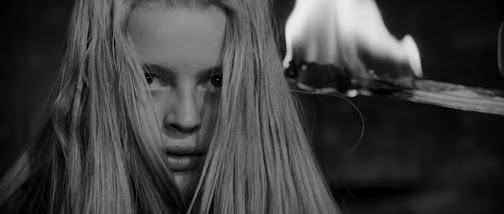
Though I'd have liked to see Thérèse--I caught only glimpses from the booth as I was inspecting and repairing another knackered print (that arrived from Italy too late for its first festival screening), but it appeared to be shot Super-35--I couldn't slot it in. Big Blue Lake, despite being shot on a digital "still" camera, did at least indicate a certain lyrical touch and an eye for framing, so I deigned to attend a screening as an audience member. I liked what I saw well enough before succumbing to nods.
 |
Outrage Beyond lacks the lyricism of earlier Takeshi Kitano films like Fireworks and Sonatine. The Yakuza genre seems to lend itself less thereto than, say, samurai movies do, though they both work in a similar mythic milieu of blood loyalty and blood violence. Actually, blood as a visual motif is largely absent, though reports of firearms and other projectile launchers take up the slack. Ultimately, I can't say who's pulling the strings here, with all the ins and outs, the back- and front-stabbings, but Takeshi gets the last laugh. As previously noted, a DI was used, and there's plenty of CGI, but at least the photography is on film, and true anamorphic at that.
The Marketa Lazarová screening started auspiciously, with an announcement that (after an earlier DCP subtitle debacle) The Mattei Affair will be shown in 35mm at the Castro Sunday, as it was shown in the PFA's Francesco Rosi series a few years back. But then I was reminded why I remembered so little of František Vlácil's medieval dream-epic. It has perhaps the worst post-synced dialog in cinema history. Much of it is over-laden with reverb, which seems to situate it within the viewer's head, and for this viewer makes it impossible, despite much screen-scanning in search of moving lips, to assign it to any particular character (or narrator?) most of the time. Failing to assimilate the dialog, I am left unable to contextualize much of the stunning if often rather too contrasty visuals. I hope my next attempt at decyphering this reputed masterpiece will occur earlier in the day. (I don't mean to snark; I would genuinely love to be able to come to terms with this film!)
 |